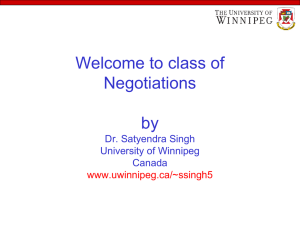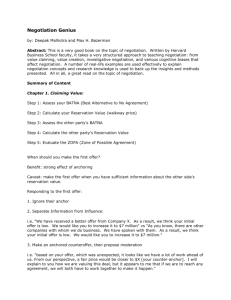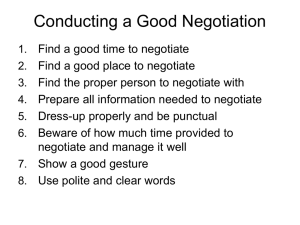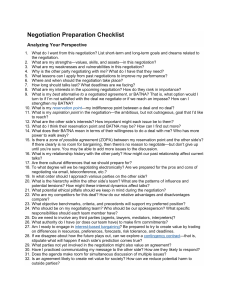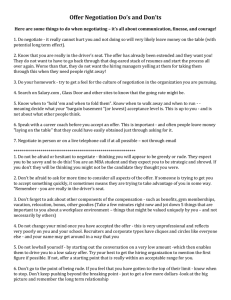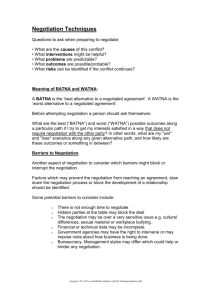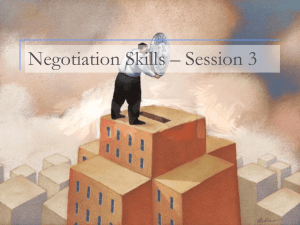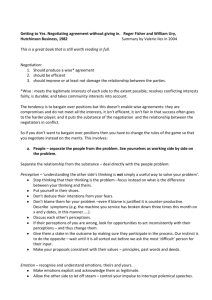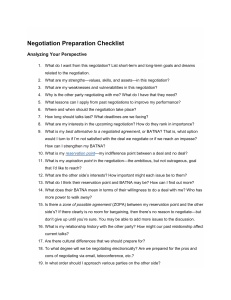"Getting to Yes" Training
advertisement
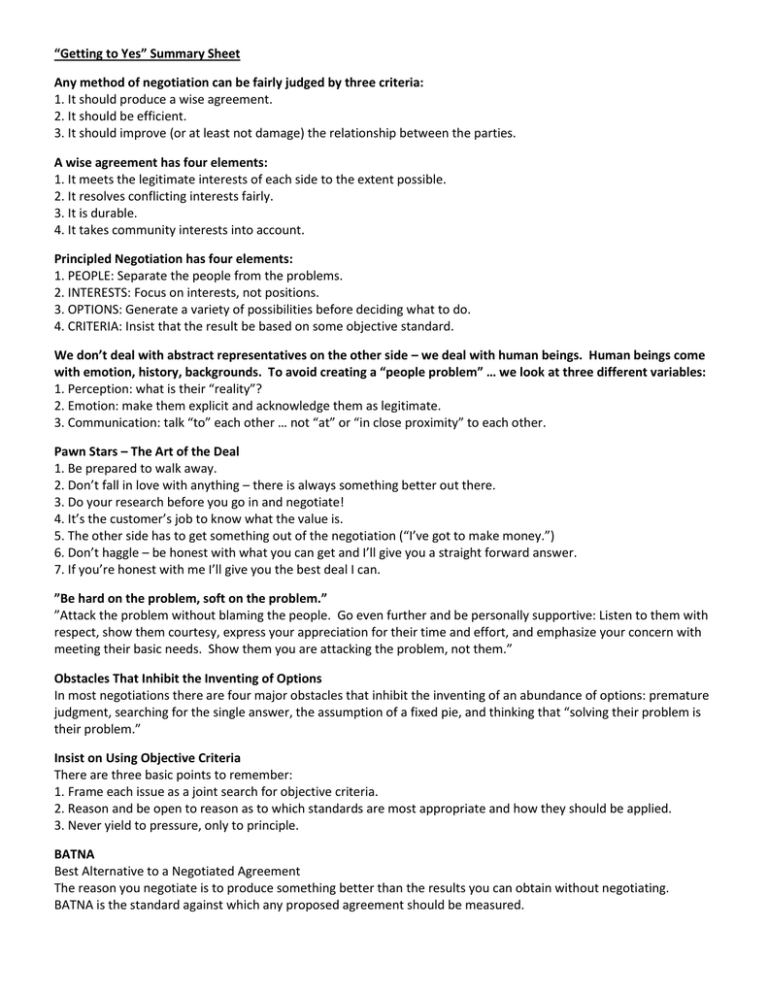
“Getting to Yes” Summary Sheet Any method of negotiation can be fairly judged by three criteria: 1. It should produce a wise agreement. 2. It should be efficient. 3. It should improve (or at least not damage) the relationship between the parties. A wise agreement has four elements: 1. It meets the legitimate interests of each side to the extent possible. 2. It resolves conflicting interests fairly. 3. It is durable. 4. It takes community interests into account. Principled Negotiation has four elements: 1. PEOPLE: Separate the people from the problems. 2. INTERESTS: Focus on interests, not positions. 3. OPTIONS: Generate a variety of possibilities before deciding what to do. 4. CRITERIA: Insist that the result be based on some objective standard. We don’t deal with abstract representatives on the other side – we deal with human beings. Human beings come with emotion, history, backgrounds. To avoid creating a “people problem” … we look at three different variables: 1. Perception: what is their “reality”? 2. Emotion: make them explicit and acknowledge them as legitimate. 3. Communication: talk “to” each other … not “at” or “in close proximity” to each other. Pawn Stars – The Art of the Deal 1. Be prepared to walk away. 2. Don’t fall in love with anything – there is always something better out there. 3. Do your research before you go in and negotiate! 4. It’s the customer’s job to know what the value is. 5. The other side has to get something out of the negotiation (“I’ve got to make money.”) 6. Don’t haggle – be honest with what you can get and I’ll give you a straight forward answer. 7. If you’re honest with me I’ll give you the best deal I can. ”Be hard on the problem, soft on the problem.” ”Attack the problem without blaming the people. Go even further and be personally supportive: Listen to them with respect, show them courtesy, express your appreciation for their time and effort, and emphasize your concern with meeting their basic needs. Show them you are attacking the problem, not them.” Obstacles That Inhibit the Inventing of Options In most negotiations there are four major obstacles that inhibit the inventing of an abundance of options: premature judgment, searching for the single answer, the assumption of a fixed pie, and thinking that “solving their problem is their problem.” Insist on Using Objective Criteria There are three basic points to remember: 1. Frame each issue as a joint search for objective criteria. 2. Reason and be open to reason as to which standards are most appropriate and how they should be applied. 3. Never yield to pressure, only to principle. BATNA Best Alternative to a Negotiated Agreement The reason you negotiate is to produce something better than the results you can obtain without negotiating. BATNA is the standard against which any proposed agreement should be measured.
